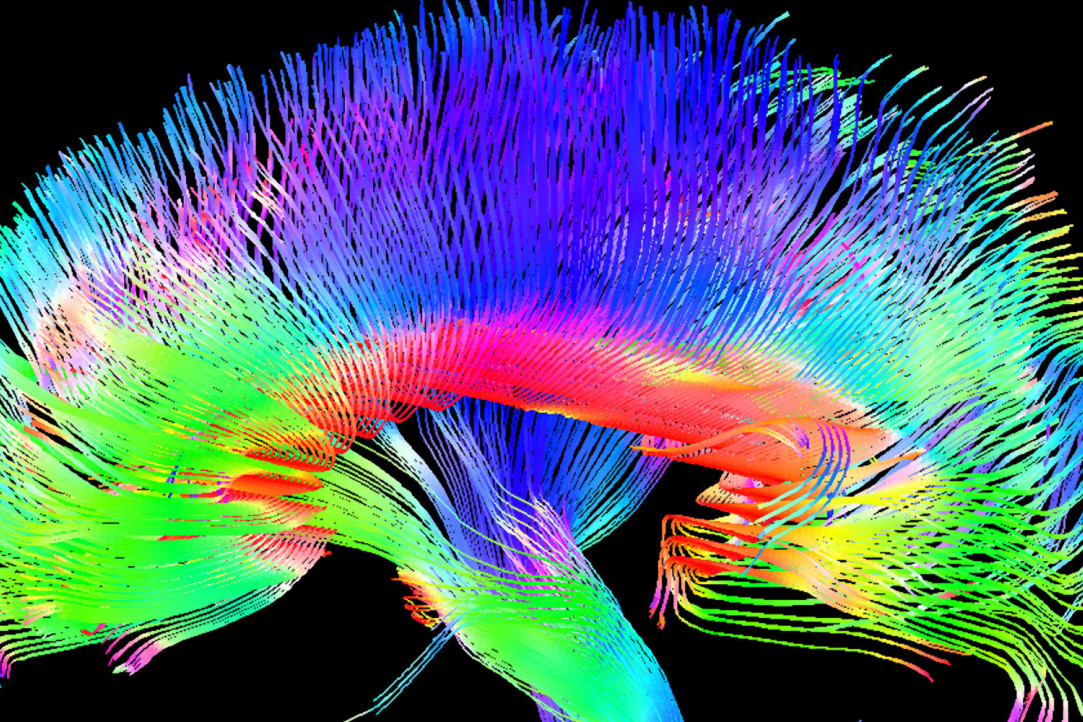Two HSE Projects Win ‘Mega-Grant’ Competition
A ‘Mega-Grant’ Competition for ground-breaking research projects funded by the Russian Ministry of Science and Higher Education was held for the seventh time, and this year’s competition winners included two projects that will be based at HSE University campuses. One research group will study dynamic systems at HSE – Nizhny Novgorod, and a new social neurobiology laboratory will begin work at HSE University in Moscow.

A ‘Mega-Grant’ Competition for ground-breaking research projects funded by the Russian Ministry of Science and Higher Education was held for the seventh time, and this year’s competition winners included two projects that will be based at HSE University campuses. One research group will study dynamic systems at HSE – Nizhny Novgorod, and a new social neurobiology laboratory will begin work at HSE University in Moscow.
Developing a Russian School of Dynamic Systems Research
At HSE – Nizhny Novgorod, a research team led by Professor Dmitry Turaev of the Imperial College of London will study dynamic systems theory and its applications. The research project will be conducted at the Laboratory of Topological Methods in Dynamics, which is based in the Faculty of Informatics, Mathematics, and Computer Science on the HSE campus in Nizhny Novgorod.
Professor Dmitry Turaev is a leading expert in dynamic systems theory who has led significant advances in the field. He is the author of more than 125 scientific articles and two books, which have been published in English, Russian, and Chinese.
The main objective of the project is to develop new methods for studying multidimensional systems with non-trivial dynamics. Due to the large number of applied tasks which involve dynamic chaos, dynamic systems theory is one of the fastest growing areas in mathematics. However, most researchers focus on systems with a ‘convenient’ mathematical structure. Researchers at the HSE campus in Nizhny Novgorod will focus on studying the structures that formalize the dynamics of systems of natural origin. The results can be applied to technological problems in physics, geophysics, and engineering.
The research group’s location is not accidental – Nizhny Novgorod is where Dmitry Turaev was born, grew up, and attended school. ‘The Nizhny Novgorod school has been and remains a leader in this area due to its combination of rigorous methods of topological and geometric analysis with applied research on nonlinear physical phenomena,’ says Professor Turaev.
It is especially important for me that the Russian center for research on dynamic systems be created in Nizhny Novgorod
In terms of the organizational tasks that lie ahead, Dmitry Turaev plans to focus on strengthening international relations, organizing effective cooperation between representatives of different disciplines, and supporting young researchers. He has prior work experience with many researchers of the Laboratory for Topological Methods in Dynamics, which includes six PhDs and seven candidates of physical and mathematical sciences. Professor Turaev intends to also collaborate with and invite 12 additional leading researchers from Russia, France, the UK, Germany, and the USA to the lab.
The fact that HSE’s Nizhny Novgorod campus offers courses in mathematics at all levels – from the undergraduate level to the PhD level – will allow the researchers to quickly implement their findings in the educational process and get HSE students and beginning researchers involved.
Russia’s First Social Neuroscience Laboratory
The HSE campus in Moscow, which is an active research site for neuroeconomics, will see the opening of Russia’s first social neurobiology laboratory. Under the leadership of Professor Iiro Jääskeläinen of Aalto University (Finland), a leading expert in the field, the lab staff will study social cognition using different forms of neuroimaging technology.
As the project leaders explain, narratives and naturalistic incentives have not yet been used in decision-making research, although interest in studying the impact of narratives in a behavioral economy — especially when making risky decisions — is growing day by day.
The use of films and narratives in combination with the latest experimental approaches to the processing of multidimensional data obtained as a result of dynamic fMRI (functional MRI), MEG (Magnetoencephalography) and EEG (Electroencephalography) brain mapping, as well as artificial intelligence, will enable the researchers to perform studies that were not previously possible.
The researchers expect that the new laboratory will allow them to make major breakthroughs in understanding brain decision-making mechanisms within social contexts and the perception and processing of narratives (including the perception of false and truthful information). They will also investigate the influence of a given cultural environment on these processes, which is especially important for a multinational country such as Russia.
The laboratory will be Russia’s first laboratory to employ cognitive neurobiology methods in the social sciences, including ethnic studies.
Thanks to the grant funds, the researchers will be able to work with new tools for neuroimaging and computing in order to study various forms of natural social communication
The new laboratory will play an active role in fostering interdisciplinary and inter-university relations at HSE University. As HSE is already an active research hub in mathematics and computer sciences, the laboratory will also be involved in developing new approaches to computational data analysis. The lab will undertake collaborative research projects with Aalto University, Harvard and Princeton Universities, and Bar Ilan University in Tel Aviv.
Over the course of the project grant period, the laboratory will offer eight student and postgraduate research positions and will provide supervision of five master’s and doctoral theses. In addition, HSE students will have the opportunity to take two courses in cognitive neurobiology taught by lab staff. The laboratory will also collaborate with HSE’s English-taught master's programme ‘Cognitive Sciences and Technologies: From Neuron to Cognition’.
